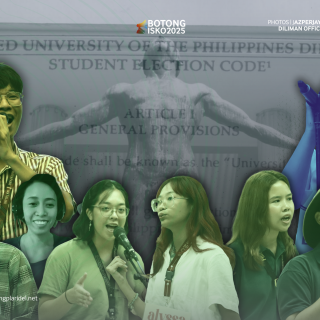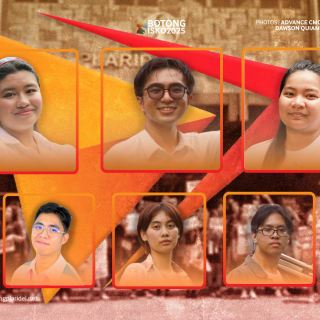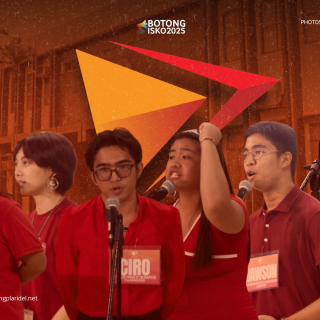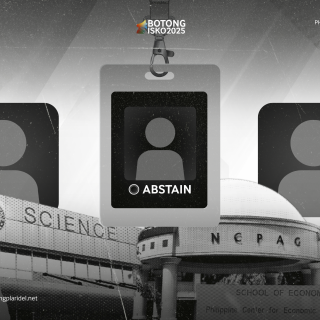In adherence to the publication’s standards of ethical and professional reporting, TNP is disclosing its ethical policy as it proceeds with #BotongIsko2024, our coverage of the UP Diliman university and College of Mass Communication councils elections.
Our ethical guidelines are sectioned into following categories: fact-checks, graphics, live tweets, photography, multimedia, and about us. Please note that we lifted some of the guidelines from previous Botong Isko coverages as we will adhere to the same standards.
You may find our guidelines below.
Fact-checking
This fact-checking guide has been reviewed and approved by VERA Files co-founder and Assoc. Prof. Yvonne Chua, who teaches fact-checking at the UP College of Mass Communication.
As part of Botong Isko, our coverage of the university student council elections, Tinig ng Plaridel will be fact-checking the claims made by candidates running for council positions at the university and college levels. Written below are the standards we use when we do our fact-checks.
Our standards are based on the measures used by Tsek.ph, a nationwide coalition of newsgroups and fact-checking initiatives. It is also in tune with VERA Files’ fact-checking policy and the International Fact-Checking Network’s code of principles, which ties fact-checkers to impartiality, transparency and accuracy.
Why do we fact-check?
- We fact-check so our audience is guided with accurate and verified information to make informed decisions.
- We fact-check to hold our student councils accountable for the statements they release as officials or as candidates.
- We do not fact-check to deliberately harm a political candidate or party. We do not fact-check to push forward a political agenda.
- We fact-check in pursuit of the truth, and nothing else but the truth. We fact-check in commitment to our standards of ethical and professional journalism.
Ratings
We use the following ratings for our fact-checks:
| RATING | DESCRIPTION |
| Accurate | The statement is demonstrably factual and true. |
| False | The statement/claim is demonstrably contrary to available facts. |
| Misleading | The statement/claim gives a vague or different impression. |
| Needs Context | The statement/claim needs more facts or clarification because it may be taken out of context. |
| No Basis | The statement/claim cannot be verified or fact-checked. |
| Flip-Flop | The opinion expressed is not consistent with previous statements. |
Our fact-checking methodology
The following are the claims that we fact-check:
- Claims that are erroneous, misleading or need context;
- Political parties or candidates who flip-flop or change their stances on important issues;
- Platforms and campaign materials of candidates; and
- Election-related statements and remarks made by candidates and political parties
Our fact-checking team watches public announcements and claims made by candidates for the college and university student councils. As we have limited human resources, our fact-checks only depend on what our staffers and editors can spot from public debates and various fora. Our readers may also send in requests to verify claims through our Facebook page, Twitter direct message, or our email, [email protected].
However, not all claims are eligible for our fact-checking. The claim needs to:
- be verifiable by available facts
- be relevant to the public, and
- have the potential to harm readers if left unchecked.
Once the claim has passed these standards, our fact-check team tests it against the most recent and reliable facts. This includes government data, previous party claims, research studies and various primary sources. We also provide the necessary context, especially for misleading claims. The article provides links to the sources of information so the readers can verify the findings themselves.
Fact-checks are written in a way that would not amplify the erroneous or misleading claim but would highlight correct information. As such, the articles use the format suggested adopted in Lewandowsky et al. (2020)’s “The debunking handbook”:
- Fact: We lead with the fact and make it simple, concrete and plausible.
- Warning about the myth: We give readers the full context of the claim in question.
- Explanation of fallacy: We explain why the claim was rated this way, and we present the facts after doing our diligent verification and/or fact-checking.
- Fact: We conclude the article by reinforcing the fact.
Corrections policy
Mistakes can happen despite rigorous fact-checking. We recognize the importance of admitting to mistakes and promptly providing correct information when this happens. Please alert us by sending us a message either on our Facebook page, Twitter direct message or email.
After careful verification, major corrections of factual errors will be posted on our page. An apology and acknowledgment of the error will be published atop the article or attached to the erroneous post.
Graphics
How we represent data
As our coverage goes in-depth in the race for student council positions in the university and in various colleges, we follow the same template in posts representing various political parties. The colors we use in our infographics are taken directly from the colors of the political parties’ official Facebook pages. If the main color is difficult to read, we opt for the party’s color that is easier to read.
All our graphic output is clearly labeled with our coverage name to ensure delineation from our coverage of day-to-day output.
Live Tweets
Our livetweet coverage depends on the availability of staffers and editors. However, we strive to cover important debates and fora where candidates for the University Student Council and the College of Mass Communication student council are involved.
When live tweeting, we strive to give equal space for all political parties during debates or the miting de avance. All livetweet coverages are monitored by a TNP editor and a fact-checker, who will ensure accuracy and fairness at all times.
Photography
Our photography coverage depends on the availability of the staffers and editors. To maintain fairness, we aim to only cover events during the election campaign where all political and independent parties are present.
Multimedia
In accordance with our mandate to cover local issues, we will be conducting interviews for candidates running for positions within the College of Mass Communication.
These interviews will be compiled into a short question and answer video format.
The interviews would be done regardless of a candidate’s political affiliation. All candidates will be asked similar questions and must answer within a uniform time limit. This is to ensure fair and comprehensive coverage and to allow all candidates equal opportunity to share their platforms.
About us
To ensure that our publication is devoid of influence from political parties as much as possible, we have screened our staffers to determine potential conflicts of interest.
All staffers who are running for student council posts are required to file a leave of absence with TNP, including those who are members of political parties and groups that have expressed support for parties.
For full disclosure, TNP is a student publication of the UP College of Mass Communication (CMC). While it is based in the college, it is not recognized as CMC’s official student paper. As such, we rely only on donations from our staff, editors and alumni to operate. We do not accept donations from political parties as these may meddle with our editorial independence.









